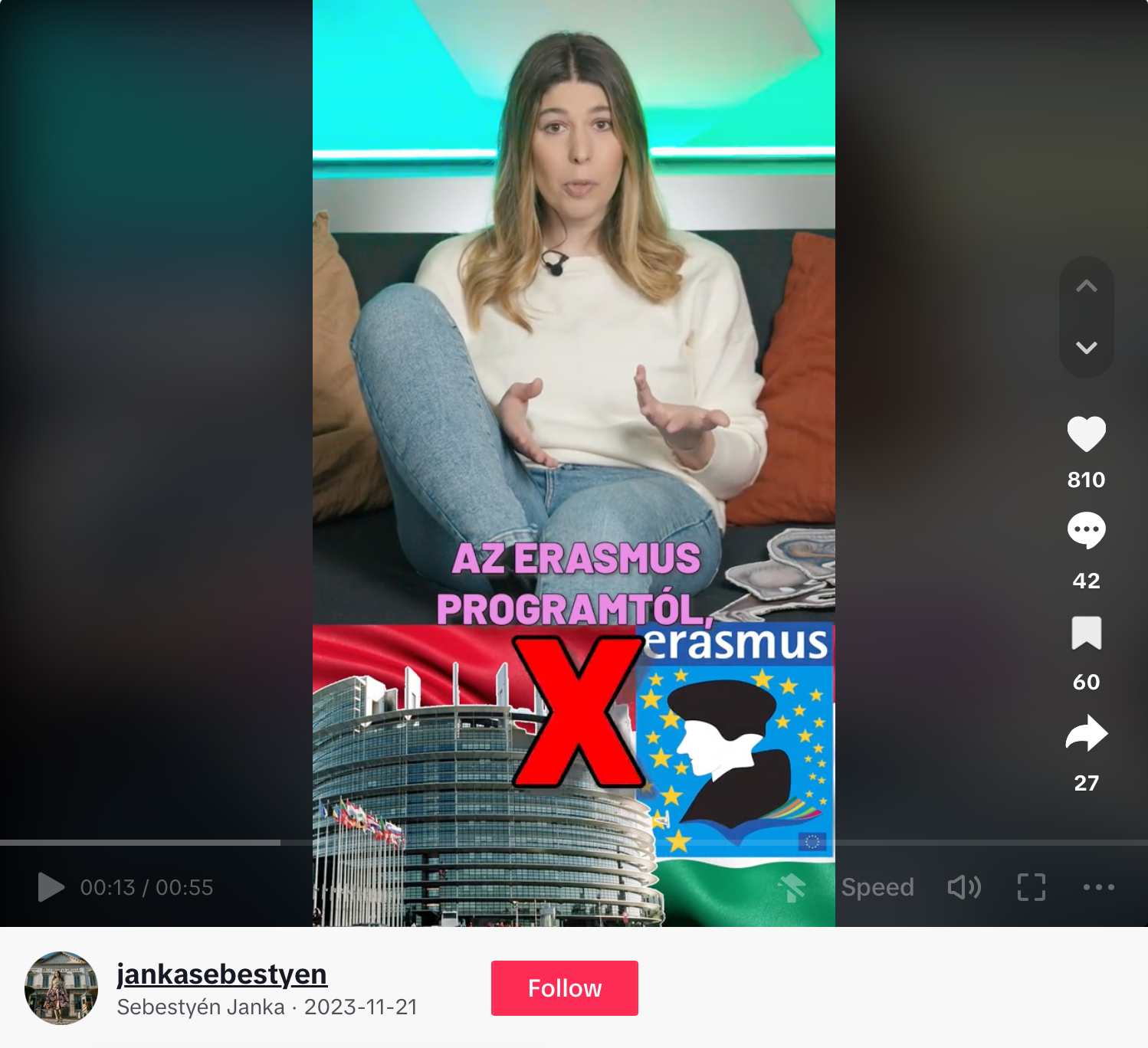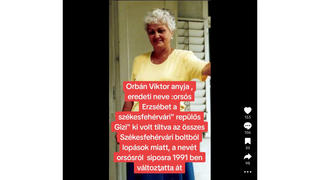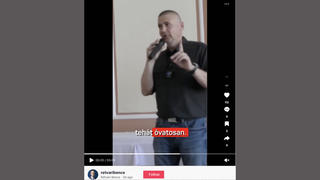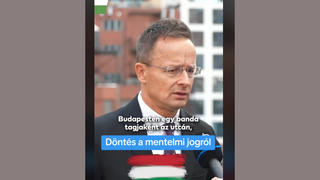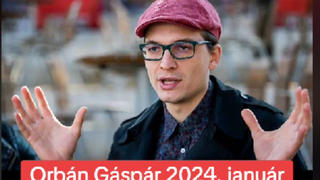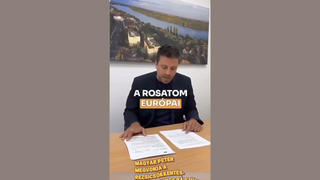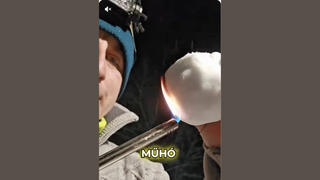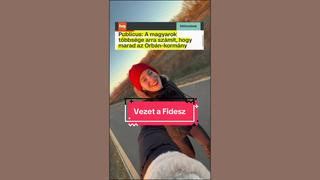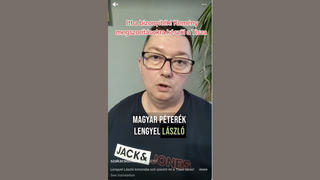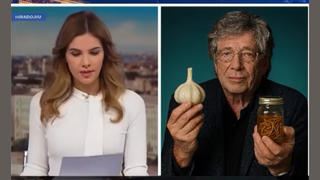A CIKK FRISSÜLT: Nézze meg a lenti frissítéseket.
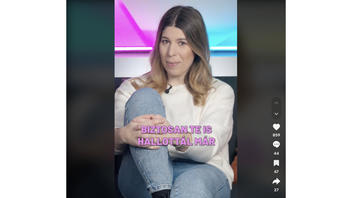
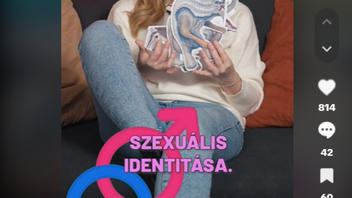
Az Európai Unió tényleg finanszíroz egy doktori szakdolgozatot, amely az Oromó etiópiai népcsoport mitológiájában szereplő szörnyek szexualitására fókuszál, miközben megtagadja a magyar diákok kutatásainak támogatását? Nem, ez nem igaz: az érintett PhD hallgató elmondta a Lead Storiesnak, hogy nem az EU, hanem egy belga-etióp ösztöndíjprogram finanszírozza disszertációját, amely nem az afrikai szörnyek „szexualitására" összpontosít. Internetes keresések alátámasztják nyilatkozatát, nem találnak bizonyítékot a projekt uniós támogatására.
Az állítás egy TikTok videóban jelent meg (itt archiválva) 2023. november 21-én, az "Ilyen dolgokra költi Brüsszel a pénzt..." címmel. A bejegyzést Sebestyén Janka készítette, aki partnerként tevékenykedik a kormányzó Fidesz párt támogatására közösségi médiatartalmakat készítő Megafon Központnál. Sebestyén azt mondja:
Tudtad, hogy miközben Brüsszel a magyar diákokat megfosztja az Erasmus programtól, és nem támogatja a kutatásaikat, addig Belgiumban több százezer forintot ad egy olyan projektre, ami a „szörnyek gender-kapcsolatait vizsgálja az Oromók száj-hagyományában." Igen, jól hallottad! Bár eddig azt sem tudtuk, hogy kik azok az Oromók... de most hírtelen a szörnyeik szexualitásának a kutatására kell elkölteni egy valag pénzt? Ne értsétek félre, semmi bajom velük. Az Oromók egy észak-afrikai népcsoport, akik Etiópia népességének a nagyrészét teszik ki. De biztos, hogy ez kell most legyen Európának a legfontosabb? Az Erasmustól megfosztott magyar diákok meg le vannak ejtve?
A bejegyzés így nézett ki a TikTokon e cikk megírásakor:
(Forrás: TikTok képernyőmentés. Készült: 2024. január 29., hétfő 13:22:43 UTC)
Az Európai Unió Tanácsának 2022. december 15-én hozott határozata (archiválva itt) korlátozza az uniós költségvetést kezelő szervezeteket abban, hogy új jogi kötelezettségeket vállaljanak a magyar közérdekű vagyonkezelő alapítványokkal és a hozzájuk kapcsolódó szervezetekkel, összeférhetetlenséggel kapcsolatos aggályok miatt. Következésképpen 21 magyar egyetemnél (archiválva itt), amelyek közérdekű vagyonkezelő alapítványként működnek, a hallgatók nem vehetnek részt olyan uniós akadémiai programokban mint az Erasmus+ vagy a Horizon Europe, az Európai Bizottság 2023. január 26-i nyilatkozata alapján (itt archiválva).
A Sebestyén által kiszemelt doktori szakdolgozat, „Monsters in Oromo oral narratives from a gendered perspective," (magyarul „Szörnyek az oromó szóbeli narratívákban nemi perspektívából," itt archiválva) az uniós költségvetési pénzből nem részesül - írta a szerző, Megersa Regassa Tolasa, egy Lead Storiesnak 2024. január 26-án küldött emailben. Elmagyarázta, hogy a finanszírozás az Etiópiai Oktatási és Kutatási Fenntartható Kapacitás Fejlesztési Hálózatától (NASCERE) származik, egy ösztöndíjprogram, amelyet közösen kezel az etióp Jimma Egyetem és a belga Genti Egyetem, ahol Megersa doktorál.
Ezt megerősíti a Genti Egyetem honlapján közzétett közlemény (archiválva itt), amely szerint Megersa egy olyan csapatnak a tagja, amely támogatást kapott a NASCERE-hez köthető Flamand Egyetemközi Tanács-Egyetemi Fejlesztési Együttműködésért (VLIR-UOS) szervezettől. A flamand társaság ösztöndíjait pedig a Belga Fejlesztési Együttműködési és Humanitárius Segélyek Főigazgatósága (DGD) pénzeli, nem az EU - derül ki a VLIR-UOS pénzügyi jelentéséből (archiválva itt).
A disszertációnak "nincsen semmi köze az Erasmushoz" - mondta Megersa (a Lead Stories fordításában angolról).
Az EU támogatási ügynökségei listázzák az ösztöndíjaikat a neten, és az adatbázisok tartalmai alátámasztják Megersa azon állítását, hogy projektje nem Brüsszel nagyvonalú támogatását élvezi. Az Erasmus+ által finanszírozott, folyamatban lévő projektek adatbázisában 2024. január 30-án végzett keresés az „Oromo" kulcsszót felhasználva nem hozott eredményt (itt archiválva). A Horizon Europe projektadatbázisában ugyanarra a kulcsszóra végzett keresés szintén eredménytelen volt (itt archiválva). Az aznapi Google keresés sem hozott találatot a „Monsters in Oromo oral narratives from a gendered perspective"-re az „Erasmus" és a „Horizon Europe" szavakkal kombinálva (archiválva itt és itt).
Ráadásul Megersa azt mondta, hogy munkája nem az Oromo szörnyek „szexualitására" összpontosít, ahogy Sebestyén állítja. Az emailjében azt írta (fordítás):
Ennek a projektnek az elsődleges célja annak elemzése, hogyan erősítik meg és/vagy ellensúlyozzák a nemi hierarchiát a különféle szörnyű karaktereket tartalmazó oromó szóbeli elbeszélések... A szóbeli elbeszélések szörnyfigurái az emberi képzelet fontos részét képezik, a szörnyekről szóló történetek pedig megvitatják a nőiséggel és férfiassággal kapcsolatos társadalmi normákat, reflektálnak rájuk, alternatívákat javasoljanak és/vagy aláírja azokat. Ezeknek a narratíváknak a tanulmányozása tehát fontos hozzájárulást jelent az oromó közösségekben a férfiak és nők között fennálló egyenlőtlenségek újragondolásához.
FRISSÍTÉS 2024. SZEPTEMBER 4.: Gulyás Gergely miniszterelnökséget vezető miniszter 2023. január 12-én azt nyilatkozta, hogy a kormány kifizeti a magyar diákok ösztöndíjainak költségét az ERASMUS+ helyett, ha nem vezetnek eredményre a problémával kapcsolatos tárgyalások az EU-val (itt archiválva).
Frissítések:
-
2024-09-05T09:45:14Z 2024-09-05T09:45:14Z 2024. szeptember 4.: Új információ Gulyás Gergely miniszterelnökséget vezető miniszter nyilatkozatáról.

